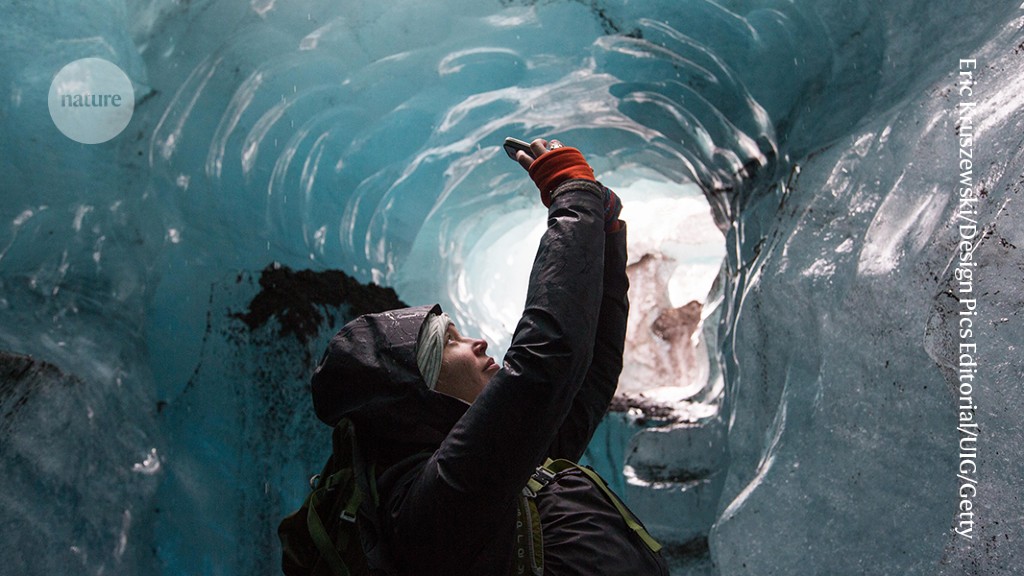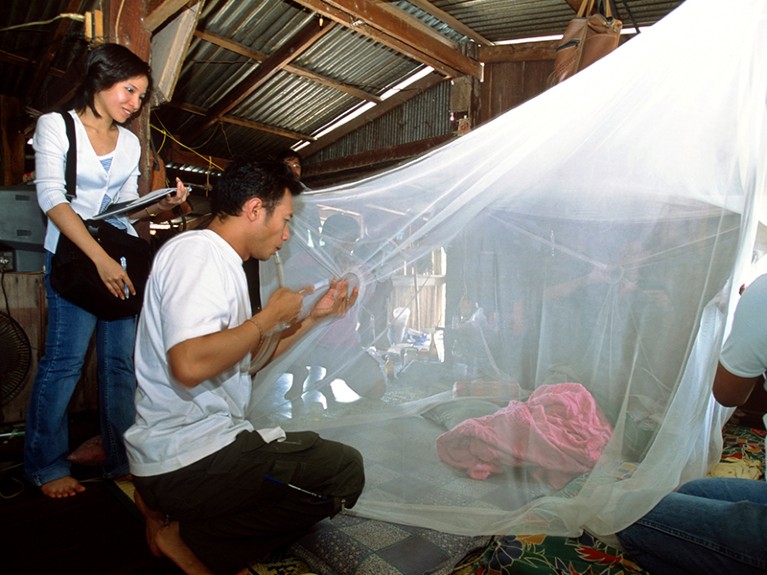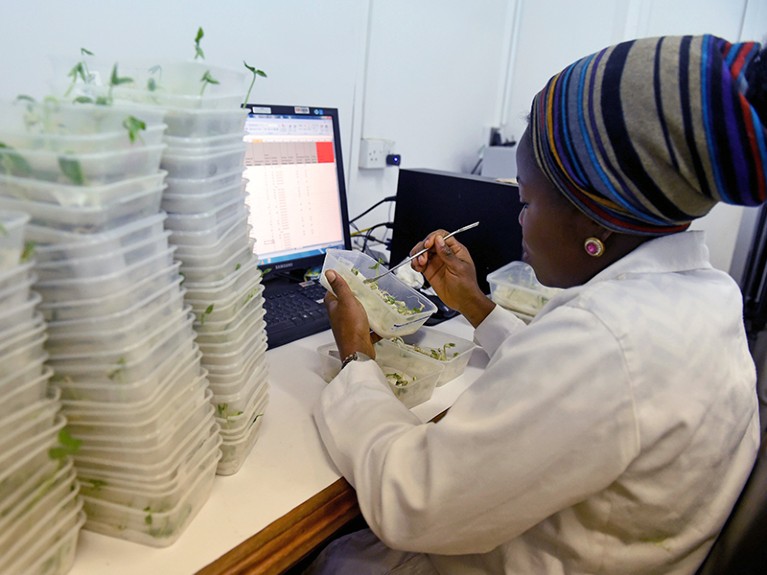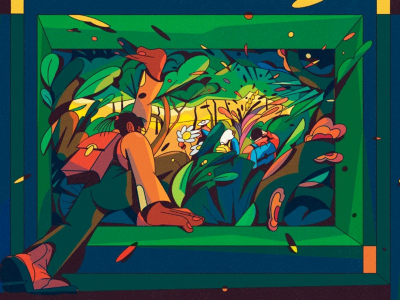
Syahirah Abdul Rahman spent 5 years pursuing elementary analysis for her enterprise PhD. She revealed her work on Malaysia’s monetary markets in a number one journal. However her discovery that “solely six individuals learn it” — based on the handful of citations her paper accrued — prompted a profession change. She realized that she wished her work to be extra instantly sensible, and now research the components that assist analysis to have a social or financial impression, at Oxford Brookes Enterprise College in Oxford, UK.
Many individuals need their work to make a constructive distinction — addressing well being, poverty or environmental points, say — and knowledge counsel that youthful generations are prioritizing such targets. A 2023 survey by the worldwide consultancy agency Deloitte of greater than 22,000 individuals — particularly Millennials (these born between the early Eighties and mid-Nineties) and people in Era Z (born mid-Nineties to early 2010s) — discovered that greater than one-third of respondents have rejected employers as a result of they didn’t align with their values.
Assist to form coverage together with your science
The crises of the twenty-first century, such because the nice recession, the COVID-19 pandemic and local weather change, is perhaps driving a shift amongst younger individuals, says Christopher Wong Michaelson, a thinker who research what makes work worthwhile on the College of St. Thomas in Minneapolis, Minnesota. “We discuss extra overtly about which means and objective at work at this time than prior to now,” he says.
However what counts as significant work for researchers, and the way can they direct their energies in direction of it earlier than, throughout or after their PhDs? Eleven specialists — together with philosophers, labour economists, different social scientists and a Nobel prizewinner — shared their ideas with Nature.
1. Make what you’re keen on profit the world
One standard framework for eager about significant work is to search for the intersection between what you might be good at, what you’re keen on, what you may be paid for and what the world wants. Sadly, few careers land neatly in the course of this Venn diagram, says Michaelson, with laboratory work most likely falling into the class of worthwhile however underpaid.
Moderately than wrestling with whether or not we should always serve ourselves by doing what we love, or as an alternative serve the wants of others, Michaelson says a practical reply is to consider flip what you’re keen on into one thing that’s helpful to the world, or vice versa. For a researcher, this would possibly contain directing a ardour for synthetic intelligence into regulation of the expertise, or tilting analysis on automobile emissions in direction of work on low-emission automobiles. Or it’d imply selecting work that’s worthwhile — and turning into adequate at it that satisfaction will observe.
Michaelson, who labored in administration consulting earlier than coming into academia, cautions that analysis careers may be slow-burning. “A whole lot of analysis won’t ever see the sunshine of day, it is going to fail or will stay obscure,” he says. Against this, making use of analysis by bringing an thought to market might need a right away however extra shallow impression, and “we’d like each”, he says.

Researchers check insecticide-laden mosquito nets in Thailand. Infectious-disease analysis may be rewarding, however gradual to bear fruit.Credit score: Thierry Falise/LightRocket/Getty
These searching for a significant profession ought to watch out for firms which have rushed to articulate ‘objective statements’ about making the world a greater place. There’s a threat that this quantities to ‘purpose-washing’, says Michaelson, during which companies flaunt do-good targets to spice up shareholder worth and appeal to value-driven younger staff.
However there’s excellent news for researchers on the lookout for objective of their work: the philosophers interviewed for this text principally seen analysis itself as a significant profession. “Growth and manufacturing of data tends to be of profit to human beings,” says Michael Cholbi, a thinker on the College of Edinburgh, UK, who teaches a course on the ethics of labor. Tutorial researchers are sometimes educators, too, he provides, and there’s loads of analysis proof that schooling improves individuals’s lives1.
2. Select a urgent downside
In 2011, College of Oxford philosophy college students Will MacAskill and Ben Todd have been attempting to work out pursue worthwhile careers. They discovered that normal profession recommendation fell brief as a result of it didn’t present which path would possibly assist the world most. That prompted them to begin 80,000 Hours, a careers advisory group in London, that goals to assist college students have the most important constructive impression with the 80,000 working hours of their lives (40 hours × 50 weeks × 40 years). It turned a foundational group within the worldwide ‘efficient altruism’ motion, which seeks probably the most impactful methods to assist others.
80,000 Hours has compiled a listing of the world’s most urgent issues — topped by dangers from synthetic intelligence, catastrophic pandemics and nuclear battle. The group ranks issues as extra urgent in the event that they have an effect on many individuals, if they’re comparatively uncared for (in order that one particular person tackling the difficulty might need a big impression) and if options is perhaps discovered. Acknowledging that some individuals would possibly disagree with the listing, the group supplies a approach for somebody to work out which issues matter most to them. 80,000 Hours additionally suggests that folks study areas during which they might finest excel or ‘match’, and experiment.
Find out how to change analysis fields efficiently
What does all of this imply for somebody pursuing a profession in analysis? For college kids eager about a PhD, it is perhaps investigating tutorial disciplines which might be related to their very own listing of urgent issues, Todd says, and attempting jobs outdoors academia earlier than taking the plunge right into a PhD. As a result of individuals really feel a variety of strain about choosing the proper profession, Todd encourages them to suppose extra of a “step-by-step course of the place you’re going do one thing for a couple of years after which re-evaluate”. 80,000 Hours supplies detailed on-line profession steering and particular person careers recommendation, primarily based on specialists’ views and tutorial analysis.
The group estimates that it has reached greater than 400,000 individuals and that a whole lot have modified their careers in consequence. However it confronted controversy final yr due to its hyperlinks to the previous billionaire and convicted cryptocurrency fraudster Sam Bankman-Fried. MacAskill had inspired Bankman-Fried to ‘earn to offer’ — that’s, to pursue a high-earning job and donate to good causes. And 80,000 Hours had featured Bankman-Fried as a hit story, which Todd says was a mistake; the group now emphasizes extra strongly that top earners shouldn’t do work that harms others as a way to donate. Some have criticized the group’s concentrate on long-term, existential dangers on the expense of extra rapid issues similar to poverty, one thing that Todd defends: “Addressing the issues we’re targeted on can be good for the current era in addition to future generations.”
3. Be ready to work behind the scenes
Having an impression relating to analysis usually means shaping governmental or different insurance policies. However early-career researchers usually don’t know the place to begin, says Paul Cairney, who research proof and public coverage on the College of Stirling, UK. Some “don’t even know what impression means, or what is predicted of them”, he says.
Some normal recommendation, Cairney says, is to work out which downside your analysis would possibly assist resolve, who’s answerable for it and subsequently which venue of policymaking — similar to a authorities company or non-governmental group — to concentrate on and construct relationships inside. However influencing choices may additionally imply taking a much less apparent route. For instance, UK scientists would possibly see submitting proof to a parliamentary enquiry as a fast approach to affect coverage. This would possibly get your work cited, however may make little precise distinction amid a whole lot of different submissions. “In case your goal is to have an affect on the alternatives individuals make, you’re a lot better off doing issues behind closed doorways with civil servants and getting no credit score for it,” he says.

A routine laboratory process is perhaps ‘crafted’ into one thing inspiring by specializing in its potential to unravel wider issues, similar to assuaging starvation.Credit score: Pius Utomi Ekpei/AFP/Getty
One other frequent false impression, says Kathryn Oliver, a social scientist on the London College of Hygiene & Tropical Drugs, is that policymakers don’t perceive science. She’s noticed the alternative: that it’s scientists who usually don’t perceive contribute to the coverage course of. “The job is listening and figuring out the place you’ve bought a helpful contribution — and a variety of teachers aren’t taught that ability,” she says, as a result of they’re too used to speaking about their pursuits.
Oliver recommends that researchers spend time in a coverage setting to learn the way the method works, for instance by means of fellowships run by nationwide funding companies similar to UK Analysis and Innovation or by non-profit organizations, together with the American Affiliation for the Development of Science in Washington DC. Each place researchers briefly in authorities companies or coverage teams. Even every week’s work shadowing may assist, she says.
For potential PhD college students who need their work to have an effect, Abdul Rahman recommends finding out what others have executed. As a part of her analysis, she learn greater than 100 statements submitted by universities to the UK Analysis Excellence Framework that described how analysis had an impact past academia, similar to on the economic system, society or public well being. “You may see how impression is created from elementary analysis,” she says.
4. Do your homework and observe the information
When searching for significant work, it could be helpful to have knowledge exhibiting which analysis fields or jobs do probably the most good for society and the economic system. Governments additionally have to take this into consideration when contemplating the place to spend money on analysis and improvement. However, at current, knowledge units don’t exist to reply this query, says Julia Lane, a labour economist at New York College.
One cause, she says, is that it’s troublesome to hint and measure the wide-ranging downstream outputs of a profession or financial funding in analysis. What’s extra, the world is altering quickly. Simply as it could have been nearly unimaginable to foretell 40 years in the past which fields or industries would have the most important impression on our lives at this time, it’s troublesome to foretell which fields might need the biggest impact a couple of a long time from now.
Postdoc profession optimism rebounds after COVID in world Nature survey
In the event you’re studying this in 2029, nevertheless, you might need higher luck: Lane is optimistic that extra knowledge will likely be out there to information profession alternative by then. She is growing a approach to hint the impression of the billions of {dollars} at present pouring into artificial-intelligence analysis by figuring out key researchers within the discipline. The objective is to observe the profession trajectories of the PhD college students and postdoctoral scientists who work for them, together with the industries they ultimately work in and the wages they earn. In a couple of years, evaluating such knowledge on completely different fields may reveal that are having the most important financial impression — and, for people selecting a profession path, which companies are hiring and what kinds of ability are in demand.
Within the meantime, Lane says, the profession recommendation that she has given PhD scientists at analysis conferences is to search out out the place the neatest postdocs and college students are going and who they’re speaking to. “They’re betting their careers on the perfect new concepts,” she says, “so discover out who’s the charismatic, hard-working school member who’s fizzing with concepts.”
However plan your profession rigorously, says Paula Stephan, an economist at Georgia State College, Atlanta, who has studied the careers of scientists and engineers. Notably within the life sciences, “individuals get sucked in” to doing a PhD after which a postdoc with no everlasting tutorial position in sight. “They actually need to go in with their eyes open,” she says.
5. Maintain sight of the massive image
Organizational psychologist Jennifer Tosti-Kharas is one in all many in her discipline to develop into within the thought of labor as a ‘calling’ — a significant, consuming ardour. When she and her workforce systematically reviewed greater than 200 research on experiencing work as a calling, they discovered it was extra strongly linked to constructive outcomes, similar to engagement at work and general well-being, than to adverse ones2.
This was true no matter whether or not somebody thought their work was objectively significant (‘my work advantages others’) or subjectively significant (‘it’s fulfilling to me even when it doesn’t profit society’). “Each paths matter for general well-being,” says Tosti-Kharas, who works at Babson School in Wellesley, Massachusetts, and has co-authored a forthcoming e-book with Michaelson referred to as Is Your Work Price It?
However ardour may backfire if, for instance, it drives individuals to overwork, neglect their well being or threat being exploited. A examine of US zookeepers steered that these with a powerful sense of calling thought of their work significant and important, however that they have been additionally prepared to sacrifice pay and private time3.
One other downside with any work is the inevitable occasions when it feels mundane. Tosti-Kharas says her work as a professor is significant general, however not “within the thick of grading or coping with a pesky reviewer on a paper or sitting in a boring committee assembly”.
One answer is to maintain the larger image in thoughts. A examine of hospital cleaners discovered that whereas some seen themselves as low-skilled and in work they disliked, others thought their work was fulfilling, extremely expert and a necessary a part of affected person care4. This discovery helped to seed the thought of job crafting — proactively shaping work into one thing fulfilling by means of a change of mindset, because the comfortable cleaners did, or embracing new relationships and duties. With regards to analysis, a dreary lab position is perhaps crafted into one thing extra inspiring if a employee focuses on the individuals or business the work in the end goals to assist. “Get near the tip targets of the work to remind your self why it’s price it,” says Tosti-Kharas.
6. Do not forget that altering the world is difficult
Timing and likelihood play an element in whether or not and the way a lot a researcher can have an effect, says Cairney. For instance, a set of outcomes would possibly develop into influential as a result of it emerges at simply the second {that a} associated coverage is being revamped.
Abhijit Bannerjee, an economist on the Massachusetts Institute of Expertise in Cambridge who shared the 2019 Nobel economics prize for his analysis on preventing world poverty, has attributed his personal profession to a sequence of comfortable accidents — the primary being that he was born to 2 economists. As a result of likelihood occasions have a hand in our lives, Bannerjee is cautious about being too directive in telling younger individuals to enter one discipline or one other. “A whole lot of it’s accidents that make us who we’re,” he says, and generally we be taught one thing about ourselves because of them.
No matter you do, he says, be prepared to work exhausting. The work of Bannerjee and his collaborators has touched the lives of an estimated 600 million individuals, however he’s additionally been open about working lengthy hours. Bannerjee has a warning for many who suppose they will change the world whereas making plenty of cash. “I’m not saying it’s unimaginable, however don’t idiot your self — it’s usually exhausting,” he says. “Altering the world is perhaps a full-time job by itself.”


